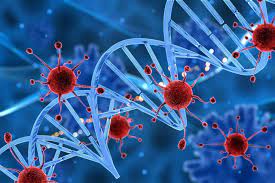Ph.D. in Cancer Epidemiology: Introduction, Admission, Registration, Eligibility, Duration, Fees, Syllabus 2024

Introduction:
A Ph.D. in Cancer Epidemiology is a gateway to becoming a leader in the field of public health, focusing on the study of cancer occurrence, distribution, prevention, and control. This advanced degree prepares researchers to understand the complex factors influencing cancer and develop strategies to mitigate its impact on society.
Admission Process:
- Application Submission: Candidates must apply, including a statement of research interests.
- Transcripts and Degrees: Provide transcripts from all post-secondary institutions and evidence of a master’s degree in a related field.
- Test Scores: GRE or equivalent test scores may be required.
- Letters of Recommendation: Secure letters from academic or professional references.
- Interview: Participate in an interview with faculty members.
- Research Proposal: Some programs require a preliminary research proposal.
Eligibility:
- A master’s degree in public health, epidemiology, or a related field.
- A strong background in biostatistics and quantitative research methods.
- Prior research experience, preferably in cancer epidemiology or public health.
- Publications in peer-reviewed journals are highly valued.
- Proficiency in English, with TOEFL or IELTS for non-native speakers.
- A demonstrated commitment to cancer research and public health.
Completion Time:
The completion time for a Ph.D. in Cancer Epidemiology typically ranges from 4 to 6 years, including coursework, comprehensive exams, and dissertation research.
Career Opportunities:
- Academic Researcher: Led groundbreaking studies in universities and research institutions.
- Public Health Official: Shape public health policies and cancer prevention programs.
- Epidemiologist: Work in government agencies or NGOs to track cancer trends and risk factors.
- Biostatistician: Specializes in statistical analyses related to cancer research.
- Consultant: Advise healthcare organizations on cancer-related public health strategies.
Syllabus:
- Core courses in Epidemiologic Methods, Biostatistics, and Cancer Biology.
- Specialized electives in Genetic Epidemiology, Molecular Epidemiology, and Cancer Prevention.
- Seminars on current research, ethics, and grant writing.
- Dissertation research focused on a specific aspect of cancer epidemiology.
Internship Opportunities:
- Internships at organizations like the National Cancer Institute.
- Fieldwork in global cancer epidemiology studies.
Scholarships and Grants:
- Research assistantships that include tuition waivers and stipends.
- Fellowships from national health organizations and cancer societies.
- Grants for specific research projects or international research collaboration.
FAQs:
What makes Cancer Epidemiology a unique field of study?
It combines the study of epidemiology with a focused understanding of cancer as a disease process.
Can I pursue a Ph.D. in Cancer Epidemiology if my background isn’t in health?
Yes, if you have a strong quantitative background and a commitment to public health.
Are there opportunities for interdisciplinary collaboration?
Absolutely, many programs encourage collaboration across disciplines and institutions.
How can I fund my Ph.D. studies?
Funding can come from university scholarships, research grants, teaching assistantships, or fellowships.




